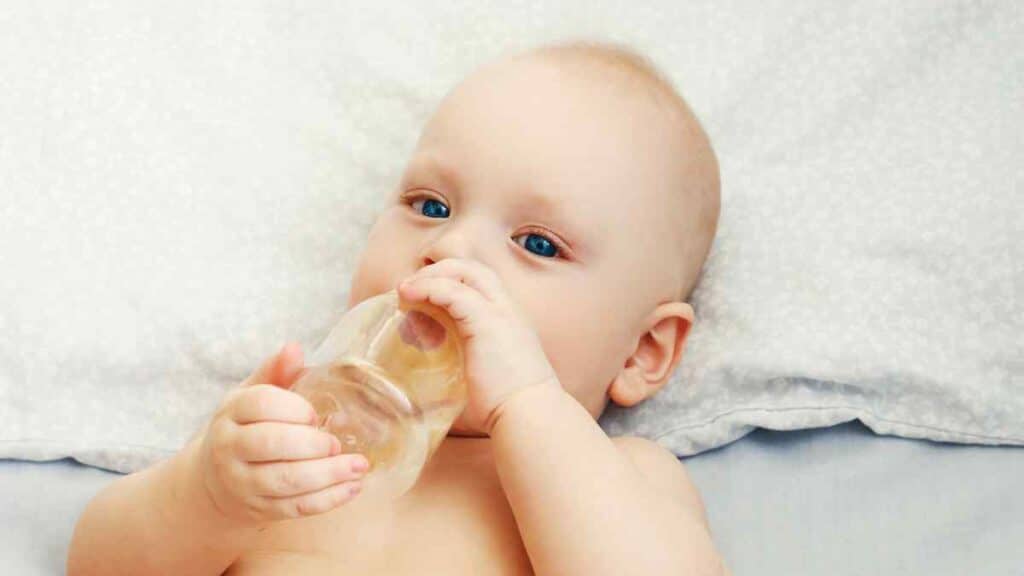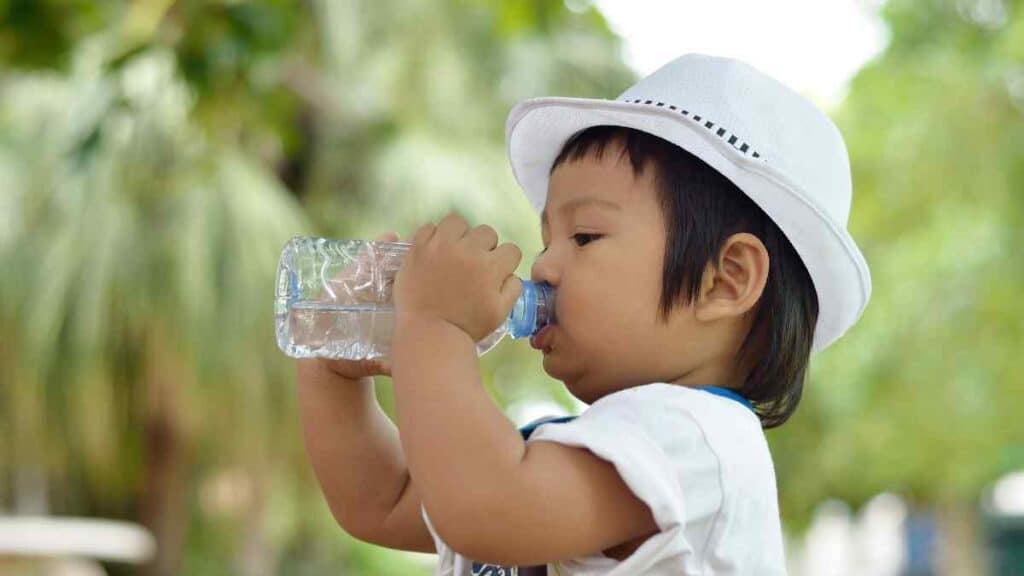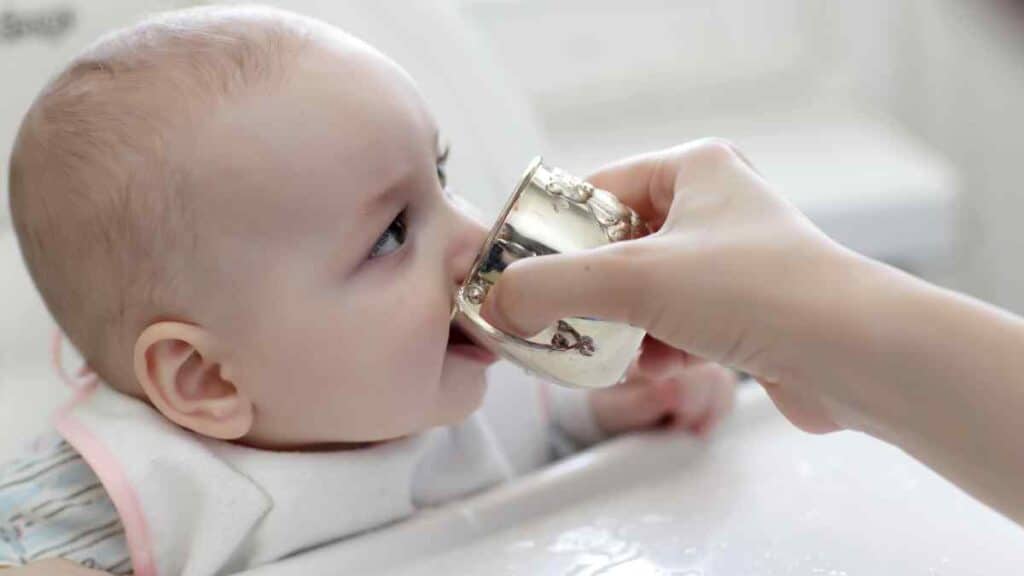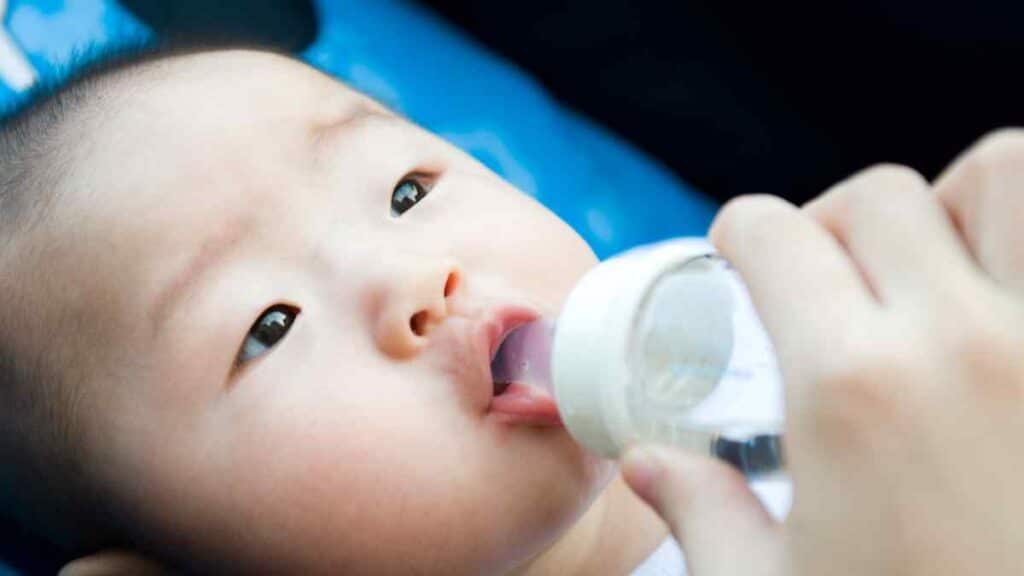As a new parent, you want to ensure that your baby stays healthy and hydrated. While breast milk or formula provides the essential nutrients and hydration your little one needs in the first months of life, you may wonder when it’s appropriate to introduce water into their diet. Understanding the right time and approach to offering water can help you navigate this important aspect of your baby’s development. In this comprehensive guide, we will address the common concerns and misconceptions surrounding water consumption for infants, providing you with the knowledge you need to make informed decisions about your baby’s hydration needs.
Babies are delicate beings, and their bodies have unique requirements during the first few months of life. Many new parents are often uncertain about when it’s safe to offer water to their little ones. Some worry that their baby might become dehydrated, while others wonder if baby water could replace the essential nutrients provided by breast milk or formula. In this article, we will delve into the topic of when a baby can start drinking water, debunking common myths along the way. By the end, you’ll have a clearer understanding of how to navigate your baby’s hydration needs and ensure their overall well-being.

The First Six Months: Exclusive Breastfeeding or Formula Feeding
Breast milk and formula are designed to provide young babies with all the necessary hydration during the first six months of life prior to letting babies drink water. Both options contain a significant amount of water, ensuring that your little one stays adequately hydrated. Breast milk composition adjusts naturally to meet the changing needs of your baby, and it contains about 88% water. On the other hand, baby formula products are carefully formulated to resemble breast milk and generally have similar water content.
Why Additional Water is Unnecessary
During the first six months, it is unnecessary to offer babies additional water, including purified or distilled water. Breast milk or formula provides the required hydration, nutrients, and electrolytes to keep your baby well-nourished and adequately hydrated. Introducing baby water too early can fill up their tiny stomachs and interfere with their ability to consume the necessary amount of breast milk or formula, which is vital for their growth and development. Moreover, excessive baby water intake in young babies can lead to a condition called water intoxication, where the balance of electrolytes in their body is disrupted. The American Academy of Pediatrics advises against giving water to babies younger than six months, except in special circumstances, such as in extremely hot weather or when directed by a healthcare professional.

Introducing Water After Six Months
As your baby reaches the six-month mark, you may start considering the introduction of water alongside breast milk or formula. Understanding the signs of readiness and the appropriate quantity and frequency of water consumption can help ensure a smooth transition and healthy hydration for your little one. It’s important to note that when we talk about baby water here, we refer to purified or distilled water, which are suitable options for babies.
Signs of Readiness for Water Consumption:
As your baby grows, they may exhibit signs of readiness for water intake. These signs include:
- Increased thirst and interest in what you’re drinking.
- Ability to sit up with minimal support and hold their head steady.
- Coordination to sip from a cup or straw.
- Demonstrating curiosity about cups and reaching for them.
- Solid food introduction, which complements the hydration provided by water.

Quantity and Frequency Guidelines:
When introducing water after six months, it’s important to consider the following guidelines:
- Start with small amounts: Offer a few sips of water at a time, typically 1-2 ounces (30-60 ml) after meals.
- Monitor their response: Observe how your baby reacts to water and ensure they are comfortable with the new taste and texture.
- Gradually increase intake: As your baby becomes accustomed to drinking water, you can gradually increase the amount, but remember to avoid overhydration.
- Avoid substituting breast milk or formula: Water should complement, not replace, breast milk or formula, as they continue to provide essential nutrients.
It’s worth noting that tap water is generally safe for babies after six months of age. However, if you have concerns about water quality or prefer an alternative, you can use commercially available purified or distilled water specifically labeled for infant consumption. These options remove impurities and contaminants, providing a reliable source of hydration for your baby.

Precautions and Safety Measures
When it comes to giving water to your baby, it’s crucial to strike the right balance. While hydration is important, excessive water intake can be harmful. Additionally, proper storage and hygiene practices are essential to ensure the safety of the water you offer to your little one. Here are some precautions and safety measures to keep in mind:
Avoiding Excessive Water Intake:
While water is necessary, babies still require a significant portion of their nutrition from breast milk or formula. Besides learning how to safely prepare baby formula, it’s important to note that excessive water intake can lead to a condition called water intoxication, which can disrupt the balance of electrolytes in the body [1]. To avoid this, follow these guidelines:
- Offer water in moderation: Provide small sips of water after meals rather than allowing unrestricted access to avoid water intoxication.
- Avoid substituting feeds: Do not replace breast milk or baby formula with water, as they provide essential nutrients for your baby’s growth and development.
- Monitor your baby’s hydration: While parents let their young babies drink water when introducing solid foods, it’s best to pay attention to wet diapers, tears, and overall well-being. If you notice signs of dehydration or overhydration, consult your pediatrician.

Proper Storage and Hygiene Practices:
Ensuring the safety and cleanliness of the water you offer to your baby is crucial. Consider the following measures:
- Choose safe water sources: As young babies drink water, purified or distilled water labeled for infant consumption is generally a safe option. Tap water can also be suitable if it meets quality standards. Discuss with your healthcare provider if you have any concerns.
- Store water properly: If you prepare water in advance, store it in clean, sterilized bottles or containers, sealed tightly to prevent contamination. Refrigerate unused portions and discard any water that has been left at room temperature for too long.
- Maintain hygiene: Wash your hands thoroughly before handling water or preparing formula. Clean bottles, nipples, cups, and utensils with hot soapy water and sterilize them regularly to prevent bacterial growth.
Remember, the guidelines provided here are general recommendations, and it’s important to consult your pediatrician for personalized advice. They can offer specific guidance based on your baby’s individual needs and ensure their healthy hydration practices. By following these precautions and safety measures, you can provide your baby with the right amount of water and maintain a safe and hygienic feeding routine
Conclusion
In conclusion, understanding when and how to introduce water to your baby is an important aspect of their overall health and well-being. The American Academy of Pediatrics recommends waiting until your baby reaches six months of age before offering water. At this stage, they have typically developed the necessary coordination and cup-drinking skills to begin experimenting with water.
While breast milk or formula continues to be your baby’s primary source of hydration and nutrition, introducing water can be beneficial as they start exploring solid foods and their water intake needs increase. Small sips of water from a sippy cup, straw cup, or open cup can be offered after meals to complement their feedings.
Remember to pay attention to your baby’s wet diapers, body temperature, and overall well-being to ensure they are adequately hydrated. If you have concerns about water intake or your baby’s hydration levels, consult your pediatrician for personalized guidance.
As you navigate this exciting stage of introducing water, it’s important to strike a balance and avoid excessive water intake. Providing enough fluids to stay hydrated without replacing breast milk or formula entirely is key. Too much water can interfere with their nutritional intake and may lead to overhydration.
By following the guidelines provided by healthcare professionals and listening to your baby’s cues, you can ensure a smooth transition to incorporating water into their routine. Remember, every baby is unique, so trust your instincts and consult your pediatrician for any specific concerns or questions you may have. With proper care, your baby will stay hydrated and continue to thrive on their journey of growth and development.
Did this article help? Please share your thoughts! We’d love to hear from you.



